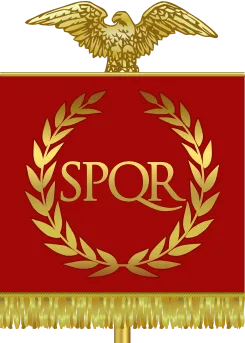|
|
|
| Ambition |  | Nil satis nisi optimum. Nothing but the best is good enough. — motto of the Air Training Corps and of various schools |  | Sic itur ad astra. Thus one journeys to the stars. — Virgil, 70-19 BC, Roman poet (i.e. thus one reaches high) | | | |
|
|
| Limits |  | Ne plus ultra. No further. — Latin phrase (impassable obstacle) | | | |
|
|
|
|
|
|
|
|
|
|
| Doing |  | Age quot agis. Do what you do. — Latin phrase (without distractions) |  | Dictum, factum. What is said is done. — Latin phrase | | | |
|
|
|
| Readiness |  | Si vis pacem, para bellum. If you want peace, prepare for war. — Latin phrase |  | Libens-Volens-Potens Ready-Willing-Potent — Latin phrase |  | Semper paratus. Always ready. — motto of the US Coast Guard | | | |
|
| Diligence |  | Semper letteris mandate. Written orders, always. — Latin phrase | | | |
|
|
| Persistence |  | Gutta cavat lapidem. Dripping water hollows out stone. — Latin proverb | | | |
|
| Multitasking |  | Multum, non multa. Much, not many. — Latin proverb (meaning: take much care but not of many things; [replace “take care” with “earn” or whatever]) | | | |
|
| Ways & Means |  | Destitutus ventis, remos adhibe. If the winds fail you, use the oars. — Latin phrase |  | Lupus dentis, taurus cornis. The wolf with his teeth, the bull with his horns. — Latin proverb |  | Quod semper, quod ubique, quo ab omnibus. What always, what everywhere, what by everybody. — Saint Vincent of Lerins, 5th century Gallic monk (determining what Catholics must believe to fight heresy) | | | |
|
|
|
| Duty |  | Ave Caesar, morituri te salutant. Hail, Caesar, those who are about to die salute you. — Latin phrase | | | |
|
| Synergies |  | Ubi concordia, ibi victoria. Where there is unity, there is victory. — Latin proverb | | | |
|
| Work |  | Ora et Labora. Pray and Work. — Motto of the Benedictine Order | | | |
|
|
|
|
| Leadership |  | Oderint, dum metuant. Let them hate, as long as they fear. — Caligula, 12-41 AD, Roman Emperor (originally a verse by the poet Accius) |  | Nemo autem regere potest nisi qui et regi. No one is able to rule unless he is also able to be ruled. — Seneca, 5 AD-65 AD, Roman philosopher |  | Qualis rex, talis grex. Like king, like people. — Latin proverb |  | De minimis non curat praetor. The governor does not deal with the small stuff. — Latin phrase (or: The law does not concern itself with trifles) | | | |
|
|
| The Rich |  | Dives aut iniquus est, aut iniqui haeres. A rich man is either a knave, or the heir of a knave. — Latin proverb | | | |
|
|
| Property |  | Res nullius. Nobody's — Latin phrase (for things like the sun) | | | |
|
|
| Measurements |  | Utere, non numera. Use the hours, don’t count them. — Medieval Sundial Motto |  | Si parva licet componere magnis. If we may compare small things with great… — Virgil, 70-19 BC, Roman poet | | | |
|
| Corruption |  | Corruptio optimi pessima. The corruption of the best is the worst of all. — Latin phrase | | | |
|
|
| Sports & Games |  | Citius, Altius, Fortius. Faster, Higher, Stronger — Motto of the Olympic Games (initially, a motto of Pierre de Coubertin’s school) | | | |
|
|
| Cause & Effect |  | Omnia causa fiunt. Everything happens for a reason. — Latin phrase |  | De malo, bonum. Bad from the good. — Latin phrase |  | Non quis, sed quid. Not who but what. — Latin proverb |  | Felix qui potuit rerum cognoscere causas. Blessed is he who has been able to know the causes of things. — Virgil, 70-19 BC, Roman poet |  | Causa latet, vis est notissima. The cause is hidden, the result is obvious. — Ovid, 43 BC-17 AD, Roman poet |  | Post hoc, ergo propter hoc. After this, therefore, because of this. — Latin phrase (logical fallacy) |  | Subita causa, fellitur offectue. Upon removal of the cause, the effect is removed. — Latin phrase — Latin maxim |  | Nihil est sine ratione. There is nothing without a reason. — Gottfried Leibnitz, 1646-1716, German philosopher & mathematician | | | |
|
|
|
| Victory & Defeat |  | Veni, vidi, vici. I came, I saw, I won. — Julius Caesar, 100-44 BC, Roman general & Consul (message to the Senate after his victory over Pharnaces of Pontus in 47 BC) |  | Ubi concordia, ibi victoria. Where there is unity, there is victory. — Latin proverb |  | Vincere est totum. To win is everything. — Latin phrase |  | Vae victis. Woe to the vanquished. — Titus Livius, 59 BC-17 AD, Roman historian (said by Brennus, leader of an army of Gauls who captured Rome in 390 BC) |  | Ad victor spolia. To the victor go the spoils. — Latin phrase |  | Victrix causa diis placuit, sed victa Catoni. The cause of the victors pleased the gods, but the defeat pleased Cato. — Lucian, 120-180 AD, Ancient Syrian-Greek satirist (refers to the fidelity of Cato to Pompey, when he was defeated by Caesar –used to express support for a cause, though defeated) | | | |
|
|
|
|
|
|
| Suffering |  | Perfer et obdura, dolor hic tibi proderit olim. Be patient and tough; someday this pain will be useful to you. — Ovid, 43 BC-17 AD, Roman poet | | | |
|
| Danger |  | In cauda venenum. The poison is in the tail. — Latin phrase (for something that looks harmless, but is actually bad or dangerous) | | | |
|
|
|
|
| Hunger |  | Fabas indulcet fames. Hunger sweetens the beans. — Latin proverb | | | |
|


